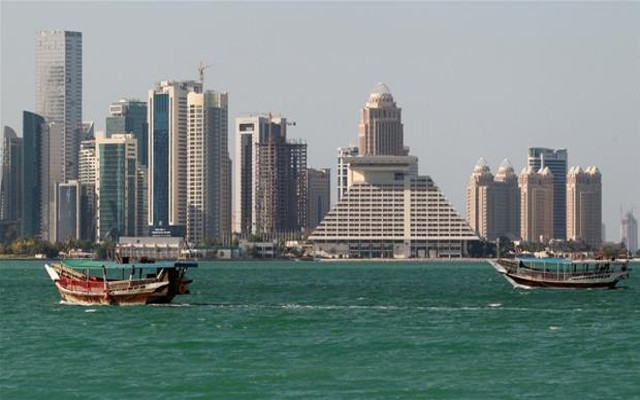12 June 2017 – A week after a diplomatic row publicly erupted between Qatar and several of its key regional allies – including Bahrain, Saudi Arabia, the United Arab Emirates (UAE), and Egypt – the small emirate remains under effective land, air, and sea blockade. Americans for Democracy & Human Rights in Bahrain (ADHRB) is seriously alarmed by reports of human rights violations and other adverse consequences of the crisis for the people of both Qatar and the participants in the blockade – chiefly Bahrain, Saudi Arabia, and the UAE – and calls for a quick and peaceful resolution to the dispute.
On 5 June 2017, in a culmination of gradually escalating tensions, Saudi Arabia, Bahrain, the UAE, Egypt, the Maldives, the Yemeni government-in-exile, and the eastern Libyan government announced that they would be severing ties with Qatar over accusations that the latter has been supporting terrorism and other subversive elements in the region. Saudi authorities, for example, alleged that Qatar has “embrace[d]…various terrorist and sectarian groups aimed at destabilizing the region,” and the Bahraini government directly accused Qatar of intervening in Bahrain’s domestic political situation through “media incitement, support for armed terrorist activities, and funding linked to Iranian groups to carry out sabotage and spreading chaos.” Several days later, Saudi Arabia, Bahrain, and the UAE – the three states involved in the dispute that are also members of the Gulf Cooperation Council (GCC), of which Qatar is a member – and Egypt “collectively designated 59 individuals and 12 institutions that have financed terrorist organizations and received support from Qatar” as a partial justification for the row. The four governments did not provide proof of terror links along with their designations, however, and included non-violent political opposition organizations along with militant groups.
In addition to publicly severing ties with Qatar, these countries have also cut off land, air, and sea access to the emirate and expelled Qatari residents. As Qatar is largely dependent on food imports – particularly through its only land border with Saudi Arabia – the move threatens to cause food shortages and to dramatically increase prices, endangering the population’s food security. Migrant workers and other vulnerable communities are at particular risk. As documented by Amnesty International, the crisis is also separating families and displacing Gulf residents.
Domestically, the states participating in the blockade have additionally moved to criminalize any expression of support for Qatar, directly violating the right to free speech. Bahraini authorities have announced that showing “sympathy or favoritism” toward Qatar or criticizing the blockade carries a penalty of up to five years in prison and a fine, while the UAE has taken even more draconian measures: expressing support for Qatar “whether it be through the means of social media, or any type of written, visual or verbal form” is now punishable by up to 15 years in prison and over a $100,000 fine. Saudi state media, meanwhile, has warned that such expression could constitute cybercrime, with associated sentences of fines and five- or ten-year prison terms. The kingdom has also closed the Saudi offices of Al Jazeera, the leading Qatari media outlet, and reportedly imposed an effective ban on the network by threatening to fine outlets that broadcast it.
“The blockade of Qatar – led by its supposed GCC allies Saudi Arabia, the UAE, and Bahrain – is yet another demonstration of Gulf leaders playing political games without any concern for human rights,” said Husain Abdulla, ADHRB Executive Director. “Vulnerable communities are exposed to food insecurity, families are uprooted, and the region further destabilized with no steps taken to prevent or ameliorate these foreseeable abuses. Moreover, these countries have seized the opportunity to intensify the censorship of their own populations, adding to what are already some of the most restrictive environments for free press and expression in the world.”
ADHRB calls on Saudi Arabia, the UAE, Bahrain, and their partners to immediately move to rectify the human rights violations arising from this blockade and to lift all restrictions on the freedom of expression. We additionally urge all parties to find a swift and peaceful resolution to this dispute in order to prevent the continuation and worsening of such attendant abuses.





